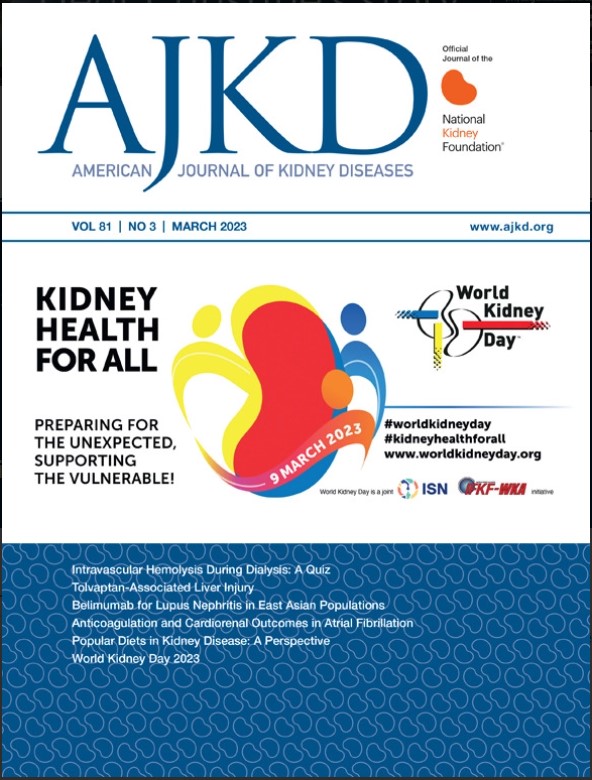Autosomal Dominant Tubulointerstitial Kidney Disease: A Review
IF 8.2
1区 医学
Q1 UROLOGY & NEPHROLOGY
引用次数: 0
Abstract
Autosomal dominant tubulointerstitial kidney disease (ADTKD) is an increasingly recognized rare condition with three primary characteristics: autosomal dominant inheritance, bland urinary sediment (absence of hematuria and proteinuria) and chronic kidney disease (CKD) leading to kidney failure (need for renal replacement therapy or kidney transplantation) between 20 and 80 years of age, with a mean age of kidney failure of approximately 45 years. Pathogenic variants in常染色体显性小管间质肾病:综述
常染色体显性小管间质肾病(ADTKD)是一种越来越被认识到的罕见疾病,具有三个主要特征:常染色体显性遗传,无血尿和蛋白尿,慢性肾脏疾病(CKD)导致肾功能衰竭(需要肾脏替代治疗或肾移植),年龄在20至80岁之间,肾功能衰竭的平均年龄约为45岁。UMOD、MUC1、REN和APOA4的致病变异已被确定为ADTKD家族的致病基因。在2000年之前,ADTKD仅在临床上被诊断,并且在不到50个家庭中被描述。然而,随着基因检测的出现和对这种情况的更好理解,ADTKD越来越被认识到,是肾衰竭的第三大常见单基因原因。本文综述的目的是为临床肾病学家提供ADTKD的临床特征、亚型以及诊断和治疗的实用方法。
本文章由计算机程序翻译,如有差异,请以英文原文为准。
求助全文
约1分钟内获得全文
求助全文
来源期刊

American Journal of Kidney Diseases
医学-泌尿学与肾脏学
CiteScore
20.40
自引率
2.30%
发文量
732
审稿时长
3-8 weeks
期刊介绍:
The American Journal of Kidney Diseases (AJKD), the National Kidney Foundation's official journal, is globally recognized for its leadership in clinical nephrology content. Monthly, AJKD publishes original investigations on kidney diseases, hypertension, dialysis therapies, and kidney transplantation. Rigorous peer-review, statistical scrutiny, and a structured format characterize the publication process. Each issue includes case reports unveiling new diseases and potential therapeutic strategies.
 求助内容:
求助内容: 应助结果提醒方式:
应助结果提醒方式:


